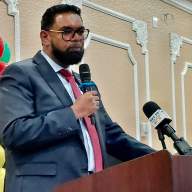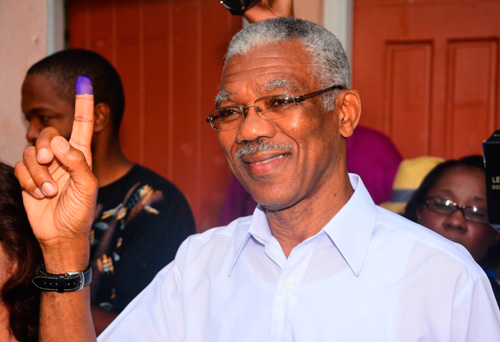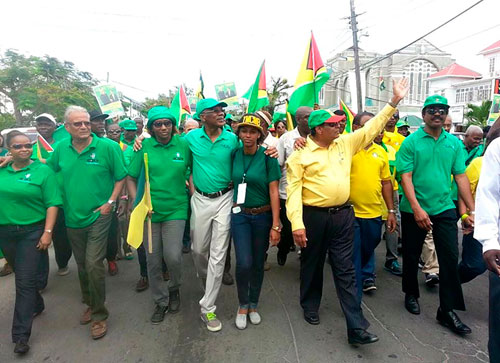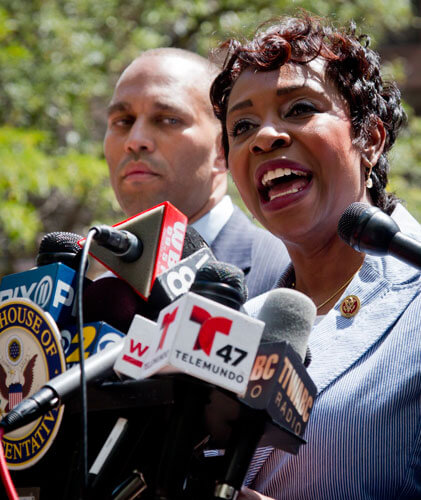If embattled President Donald Ramotar carries through with a plan to dissolve Guyana’s parliament altogether and call fresh elections as expected in May, then the country’s assembly would not have had a single sitting for nearly a year following the late 2014 suspension of sessions to stave off an opposition no confidence motion.
Ramotar took to state radio and television in early November to tell the nation that he was invoking a constitutional clause to suspend parliament after it became clear that the 33 opposition members in the house might well have voted as a bloc to fire his government and force him to call elections in 90 days.
In the ensuing months, civil society groups and western nations have called on authorities to either recall parliament or do the honorable thing and call elections as soon as possible as it is dangerous for a government to be running a country without parliamentary oversight or any other legislative system of checks and balances.
This week, British High Commissioner Andrew Ayre warned that the continued absence of the legislative branch was of serious concern to Britain and other fellow Commonwealth nations and might well result in sanctions including possible suspension from the Commonwealth. Financial aid to the country could also be slashed but at least two key ministers in the running for the governing party’s presidential and prime ministerial ticket have ferally lashed out against the British envoy
“Guyana is moving into a category of concern for the Commonwealth. That is quite clear from discussions that take place in London. Given that the stated reason for the prorogation was to have constructive talks with the majority opposition, and given that those talks are not going to happen, the UK is increasingly concerned as to what the basis for the suspension of Parliament is and how long it will last for,” the envoy said.
Fancying his chances of being the presidential candidate of the people’s Progressive Party (PPP) National Security Minister party General Secretary Clement Rohee said that authorities have no reason to give Britain or the Commonwealth the time of day as the country is a sovereign state.
“This country has gotten its independence from Britain since 1966. We don’t have to listen to what Britain says in respect to such pronouncements. This is an independent country. The British have their own arrangements there too,” Rohee said.
Foreign Minister Carolyn Rodrigues-Birkett was not to be outdone. She is in the running to be the party’s number two candidate and moved to stamp her authority and political usefulness in no uncertain manner.
She took to her Facebook page at midweek to berate Ayre, saying his reasons for recalling the Commonwealth’s suspension of Fiji after a bloody coup in the 90s had no relevance to Guyana, saying the Fijians solved their own problems with other governments who were willing to help find a solution to the suspension of democracy.
“Ironically prorogation is the legacy of the British and there must have been a good reason for it. Or is it that some can use it and others can’t?,” she asked. Opposition Leader David Granger a retired army commander and prominent historian said on his own page that the British last prorogated the house in 1628, dismissing the minister’s claim that it is a British legacy that can be followed.
The minister said that small countries such as Guyana have to always be aware of “this type of colonization that continues even as we try to consolidate our traditional relationships while forming alliances with like minded states in order to raise our standard of development,” she said, noting he has made other veiled threats about local politics in the past.
As it stands now, government critics fear that corruption which they have railed so much about the past 22 years will escalate to unprecedented levels given the fact that no one in Parliament is watching and is unlikely to do so anytime soon as Ramotar is afraid of being the first head of government to be dismissed by his own colleagues.

























